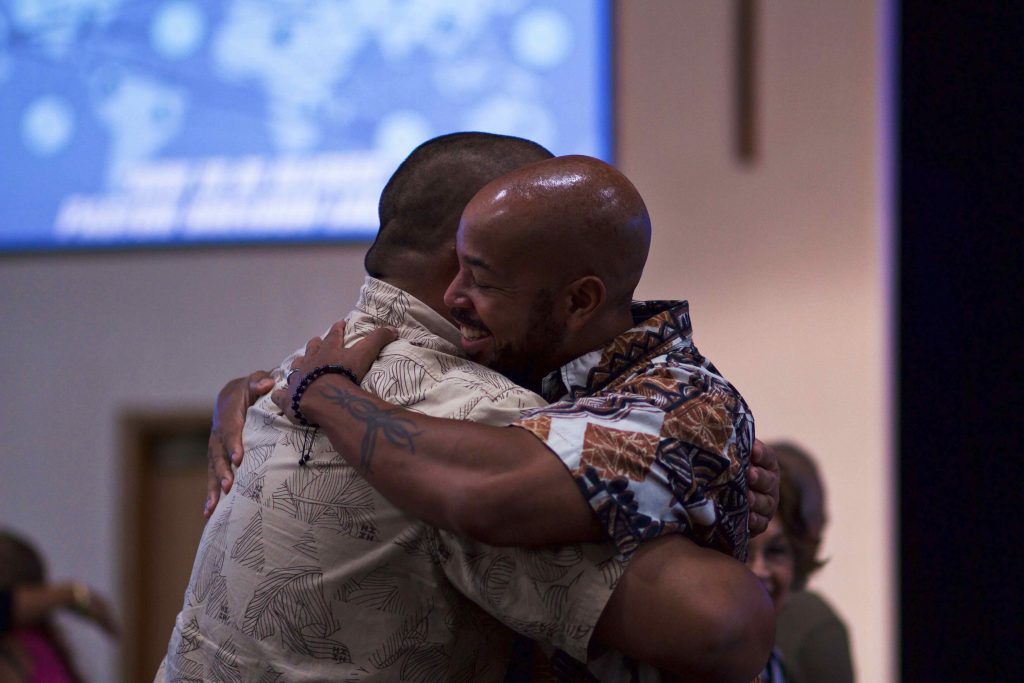
Jesus has been teaching His followers a better and deeper understanding of God’s Law. All their lives they had been told that they should not murder, and all their lives they had been told that they should not commit adultery. No doubt everyone knew those things, for they had heard the teachers of the Law speak of God’s commandments many times. But (very sadly) some of His listeners would say that when the Law says “Do not commit adultery” that the Law does not speak against lustful viewing. In so doing they would try to use the Law as a defense of their own shameful behavior.
Like anger, attraction of and by itself is not something that is inherently wrong. It’s just emotion. But if that attraction is fed by unrighteousness – that is, if it cannot be met within holy matrimony, then it must be dismissed quickly and not dwelt upon. To dwell upon unrighteous attraction is the very definition of lust, and lust is not love. It is a corruption of love. And corrupting what love is – well that is a very serious crime indeed, because Scripture tells us that it is the overarching characteristic of God. So much so that 1John 4 tells us that “God is love.”
That doesn’t mean that love is God, for God is not an emotion or a force, but a person. Rather, it tells us that love is so much a part of Him that it would be fair to describe God by that one attribute alone. Therefore, any corruption of love must be seen for what it is – a most ungodly attempt to distract us from our God, creator and purpose. Such things must be dealt with harshly, for time spent dwelling upon them is an affront to the face of God Most High.
Jesus then affords us this prescription, “If your right eye causes you to sin, gouge it out and throw it away. It is better for you to lose one part of your body than for your whole body to be thrown into hell. And if your right hand causes you to sin, cut it off and throw it away. It is better for you to lose one part of your body than for your whole body to go into hell.”
That sounds horrible. Of course, it should be obvious that Jesus is not prescribing self-mutilation. The student of God’s Word surely understands that Jesus does not want His followers to be partially blinded or worse. Even the atheist knows that amputation of a working body part is not a holy act. To mutilate our bodies – which God made in His image and for blessing – is surely a spiritual as well as physical crime! Yet what Jesus prescribes is utterly masterful – for in one stroke He imparts to us the severity of the crime of unrighteous attraction, and at the same time He makes a very witty and sarcastic comment against a legalistic literal interpretation of the Law.
We must remember the context. He is saying, “You have heard…but I tell you…” Jesus wants His hearers to think again of how they’ve heard God’s Word taught, because they’ve heard it taught from a legalistic standpoint, and only from a legalistic standpoint. But that is not the right way to consider God’s Word. Jesus wants all of His hearers to know that the reason God said, “Do not commit adultery” is not just because that particular act is evil. It is because God Himself does not commit adultery of any kind. The command is but a coarse reflection of His character. The Father doesn’t set His love on someone only to then abandon them because someone else comes along! What kind of love would that be? What manner of salvation would we have, if God so quickly abandoned the objects of His affection?
Legalism does not consider that context, nor does it look at what God says as a reflection of His character, nor does it consider how to gracefully teach God’s character. It looks only at how to justify itself. Jesus’ masterful prescription for sin then becomes a stumbling block to any who take such an approach to God’s Word. It causes them to choose; Either they re-think their hermeneutic, or they self-mutilate in what they consider obedience to it, or they face being condemned by their own preaching as a hypocrite for ignoring it.
Thankfully, God is perfect in integrity and holiness. He is ever loyal in His affection to us, and at the same time He gives no space to inappropriate thought. What Jesus teaches is that as God’s people, we ought to reflect God’s perfect holiness with our whole being – not just with our physical being! Our thoughts and even the intentions of our hearts are part of who we are, and they too need to be brought inline with who God is. Amen.
The Bible leaves no question that God is completely just. Our problem is that we don’t look at things the right way. Our problem is not that we have been given too little. Our problem is what we have done with what we’ve been given.
Henry and Richard Blackaby
APPLICATION: Intentionality
Take some time today to meditate on God’s purity. In what ways do your habits and actions reflect His purity?










